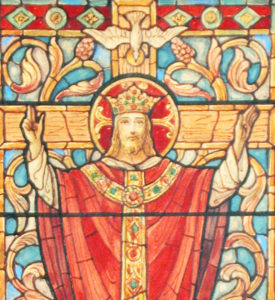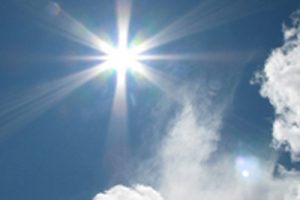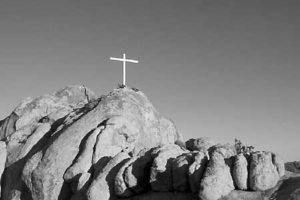“Come, Worship the Lord, For We Are His People, the Flock He Shepherds, Alleluia” – Catholic Divine Office/ Liturgy of the Hours
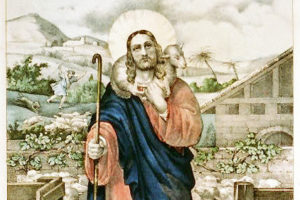
[The Divine Office, or Liturgy of the Hours, begins the Liturgical Day with “A Call to Praise God” in the form of the Invitatory Psalm, usually Psalm 95, in stanzas, or strophes, interspersed with an antiphon. For Sunday of Week II in the Four-Week Psalter, such as the Second Sunday in Ordinary Time, the antiphon is “Come, Worship the Lord, For We Are His People, the Flock He Shepherds, Alleluia.” As can be seen, that antiphon draws upon the text of one of the middle stanzas of the psalm itself.]
[Prior to the Psalm is an introductory phrase taken from Psalm 51 and a quote from the Letter to the Hebrews]
Lord, open my lips.
— And my mouth will proclaim Your Praise.
Encourage each other daily, while it is still today (Hebrews 3:13)
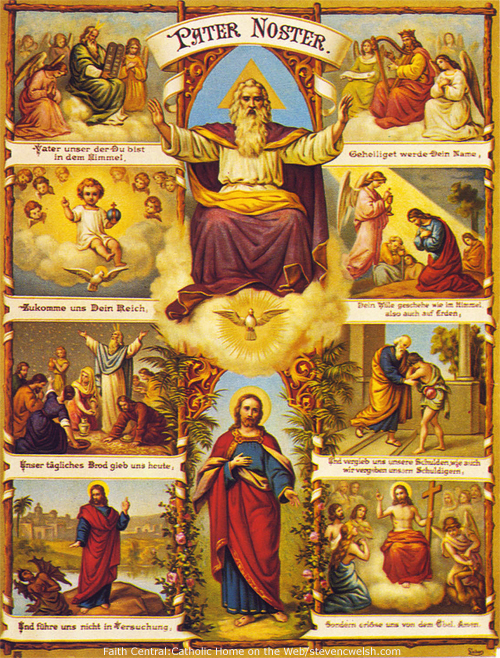 Come, Worship the Lord, For We Are His People, the Flock He Shepherds, Alleluia.
Come, Worship the Lord, For We Are His People, the Flock He Shepherds, Alleluia.
Come, let us sing to the Lord
and shout with joy to the Rock Who Saves us.
Let us approach Him with Praise and Thanksgiving
and sing joyful songs to the Lord.
Come, Worship the Lord, For We Are His People, the Flock He Shepherds, Alleluia.
The Lord is God, the Mighty God,
the Great King over all the gods,
He holds in His Hands the depths of the earth
and the highest mountains as well.
He made the sea; it belongs to Him,
the dry land, too, for it was formed by His Hands.
Come, Worship the Lord, For We Are His People, the Flock He Shepherds, Alleluia.
Come then, let us bow down and worship,
bending the knee before the Lord, our Maker.
For He is our God, and we are His People,
the Flock He Shepherds.
Today, listen to the Voice of the Lord:
Do not grow stubborn, as your fathers did
in the wilderness,
when at Meribah and Massah
they challenged me and provoked me,
Although they had seen all of my works.
Come, Worship the Lord, For We Are His People, the Flock He Shepherds, Alleluia.
Forty years I endured that generation.
I said, “They are a People whose hearts go astray
and they do not know My Ways.”
So I swore in my anger,
“The shall not enter into my rest.”
Glory to the Father, and to the Son, and to the Holy Spirit:
as it was in the beginning, is now, and will be for ever.
Amen.
Come, Worship the Lord, For We Are His People, the Flock He Shepherds, Alleluia.
[The Divine Office also indicates that Psalm 100, Psalm 67 or Psalm 24 may be used, and indicates that the psalm may be omitted when the Invitatory precedes Morning Prayer. An added note provides that, in individual recitation, the antiphon may be said once, at the beginning, rather than with each strophe.]
[As can be seen, the psalm presents a a wide-ranging encounter with God’s Greatness and our Relationship to Him. We are exhorted to approach God, to sing and shout with joy, praise and thanksgiving. God is Almighty and our Creator, indeed holding creation in His Hands.
We are to worship and follow Him in His Greatness. Yet He also is a Person Whose Voice we are to listen to and follow, Who Shepherds us as His Flock. At times, there are those who stubbornly failed to follow him, challenging Him and provoking His Wrath. In particular, with the reference to Meribah and Massah, the psalm recalls the Israelites grumbling and challenging God at points during their exodus in the desert.]

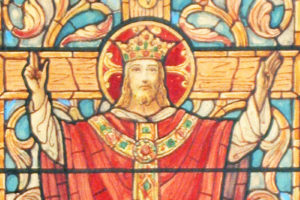
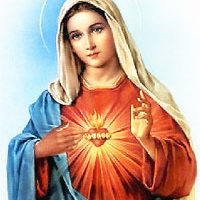
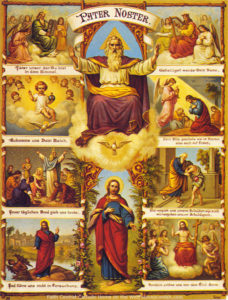 Let Us Celebrate the Motherhood of the Virgin Mary; Let Us Worship Her Son, Christ the Lord.
Let Us Celebrate the Motherhood of the Virgin Mary; Let Us Worship Her Son, Christ the Lord.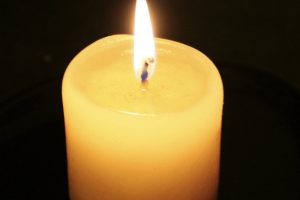
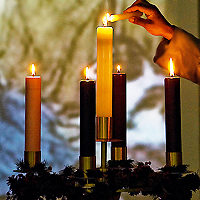
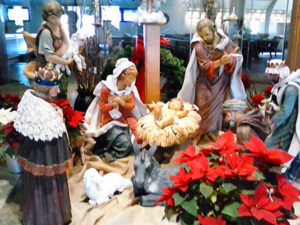 He holds in His Hands the depths of the earth
He holds in His Hands the depths of the earth